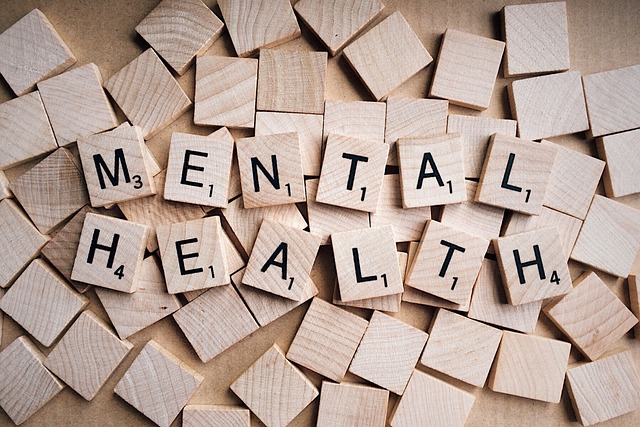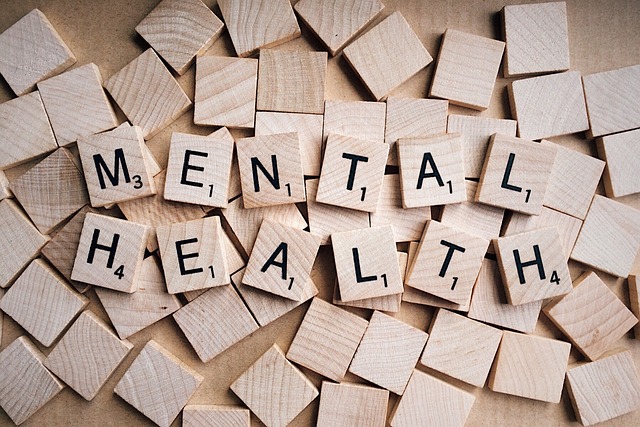Mental health advocacy is a powerful tool for creating supportive communities where individuals prioritize their well-being. Boulder Couples Counseling Therapy professionals break down stigma through open dialogue, positive thinking, and techniques like journaling and crisis intervention, empowering clients to effectively manage their mental health journeys. Advocacy initiatives should include evidence-based practices, cultural sensitivity, self-awareness exercises, emotional intelligence promotion, and community collaboration, such as with local institutions and conflict resolution programs. Measuring success through clear objectives, KPIs, surveys, and engagement metrics ensures the impact of these programs, reflecting Boulder Couples Counseling Therapy's structured approach to mental health support.
Mental health advocacy initiatives play a pivotal role in fostering well-being and reshaping societal perceptions. This article delves into the profound impact of such efforts, highlighting their benefits for individuals and communities alike. We explore key aspects, including the role of counseling therapists as advocates, effective strategies, community engagement, and measurement of success. By understanding these elements, we can empower professionals like Boulder Couples Counseling Therapy to drive meaningful change in mental health support.
- Understanding Mental Health Advocacy: Why It Matters and Who Does It Benefit?
- The Role of Counseling Therapists in Mental Health Advocacy
- Strategies for Effective Mental Health Advocacy Initiatives
- Building Community Support: Engaging Partners for Mental Wellness Campaigns
- Measuring Success: Evaluating the Impact of Mental Health Advocacy Programs
Understanding Mental Health Advocacy: Why It Matters and Who Does It Benefit?

Mental health advocacy plays a pivotal role in fostering awareness and breaking down stigma surrounding mental illness. It involves championing for better understanding, acceptance, and support systems for individuals struggling with their mental health. Advocacy initiatives aim to ensure that everyone has access to quality care, resources, and opportunities to thrive. By amplifying the voices of those affected, these efforts create a more inclusive and supportive society where mental wellness is prioritized.
This process benefits not only individuals battling mental health challenges but also their loved ones, communities, and even professionals like Boulder Couples Counseling Therapy experts. It encourages open dialogue about emotional well-being, promotes positive thinking, and provides guidance through various practices such as Mental Wellness Journaling Exercises and Crisis Intervention techniques. Through advocacy, people can access the tools and resources needed to navigate their mental health journeys effectively, ultimately leading to improved quality of life and resilience.
The Role of Counseling Therapists in Mental Health Advocacy

Counseling therapists play a pivotal role in mental health advocacy by providing expert guidance and support to individuals navigating their emotional well-being. These professionals are equipped with the knowledge and skills to offer evidence-based practices, such as Boulder Couples Counseling Therapy, tailored to address specific mental health concerns. By facilitating open conversations and offering compassionate listening, therapists create safe spaces for clients to explore and understand their emotions, fostering self-awareness and personal growth.
Incorporating self-care practices and emotional regulation techniques is another key aspect of a therapist’s advocacy. They guide individuals in implementing mental wellness journaling exercises to track moods, thoughts, and behaviors, helping them identify patterns and triggers. Through this process, clients gain valuable insights into their mental health landscape, empowering them to take proactive steps towards managing and improving their overall well-being.
Strategies for Effective Mental Health Advocacy Initiatives

Mental health advocacy initiatives require a multifaceted approach to be truly effective. One key strategy involves Boulder Couples Counseling Therapy centers and professionals who can provide specialized support. These therapists should not only be well-versed in evidence-based practices but also incorporate Cultural Sensitivity in Mental Healthcare Practice. Understanding and respecting diverse cultural backgrounds, beliefs, and values is essential for building trust and ensuring that care meets individual needs.
Additionally, integrating Self-Awareness Exercises and promoting Emotional Intelligence can empower individuals to better manage their mental health. These exercises encourage introspection, helping people identify triggers and develop healthy coping mechanisms. By fostering self-awareness, advocacy initiatives can enable individuals to become active participants in their own healing journeys, ultimately leading to more sustainable and holistic improvements in mental well-being.
Building Community Support: Engaging Partners for Mental Wellness Campaigns

Building community support is a cornerstone of successful mental health advocacy initiatives. Engaging various partners, such as local businesses, schools, and healthcare providers, can amplify the reach and impact of wellness campaigns. For instance, Boulder Couples Counseling Therapy has effectively collaborated with community centers to host workshops on self-awareness exercises, leveraging these platforms to promote mental wellness coaching programs development. These partnerships not only increase accessibility to resources but also foster a culture where open discussions about mental health are normalized.
By integrating conflict resolution techniques into their initiatives, these collaborations can further enhance the community’s resilience and coping mechanisms. Such efforts create a network of support, ensuring that individuals have the tools and resources needed to navigate life’s challenges. This collective approach, involving both professionals and community members, is vital in addressing mental health concerns at a local level, ultimately contributing to a healthier and more supportive society.
Measuring Success: Evaluating the Impact of Mental Health Advocacy Programs

Measuring success is an integral part of evaluating the impact and effectiveness of mental health advocacy programs. Much like Boulder Couples Counseling Therapy, which tracks progress through regular check-ins and goal-setting, advocacy initiatives should adopt a similar structured approach to assess their outcomes. By setting clear, measurable objectives, organizations can track key performance indicators (KPIs) related to awareness, engagement, and improved mental health outcomes within the community.
Self-Care Routine Development for Better Mental Health and Emotional Well-being Promotion Techniques often form the core of these programs. Through surveys, interviews, and feedback mechanisms, participants’ experiences and perceived benefits can be gauged. For instance, a Mental Wellness Podcast Series Production might measure success by tracking increases in podcast listeners and positive comments received, indicating growing awareness and engagement around mental health topics. These evaluations ensure that advocacy efforts are not only reaching their intended audience but also making a tangible difference in people’s lives.
Mental health advocacy initiatives, such as those promoted by Boulder Couples Counseling Therapy, are vital in fostering community support and improving mental wellness. By understanding the benefits for individuals and society as a whole, counseling therapists play a crucial role in navigating and advocating for better mental health resources. Effective strategies and partnerships can revolutionize mental health care, ensuring that everyone has access to the support they need. Measuring success through evaluation allows us to appreciate the profound impact these initiatives have on transforming lives and communities.














